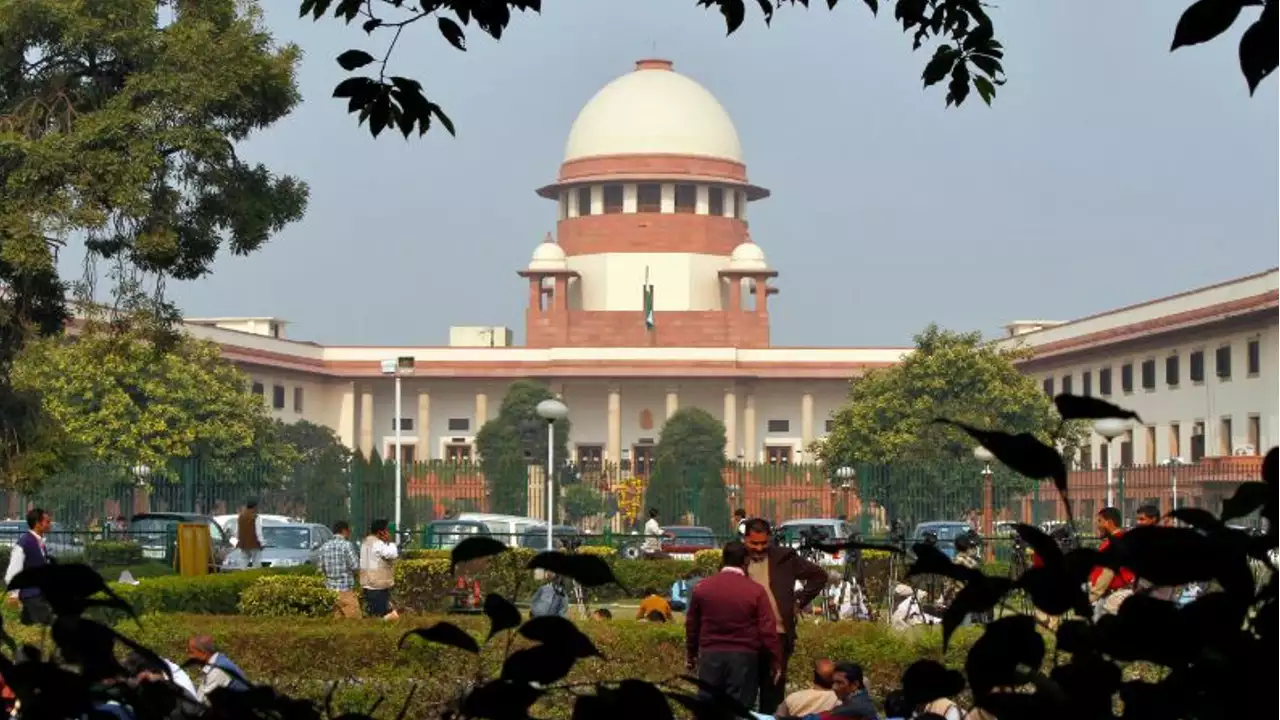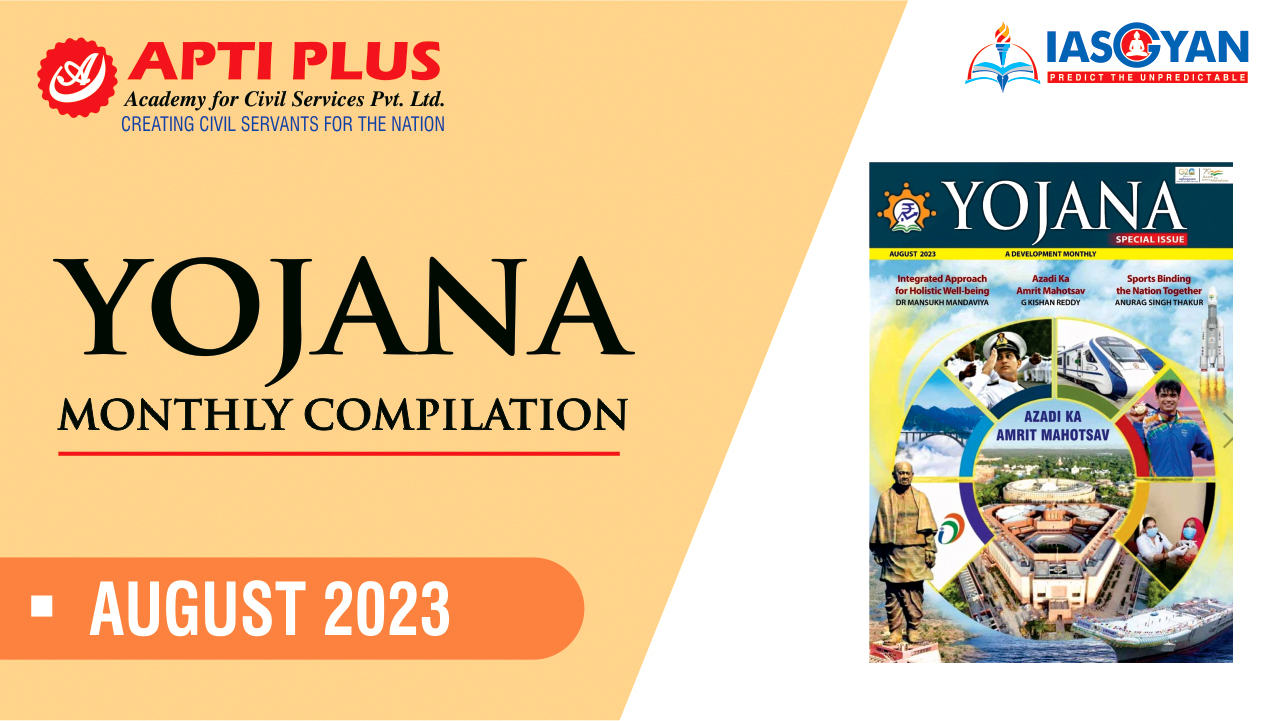Description

Copyright infringement not intended
Picture Courtesy: timesofindia
Context: The issue of whether lawmakers can be tried for corruption charges in a criminal court was sent to a larger bench of seven judges by the Supreme Court. The court will examine if the constitutional protection given to legislators under Articles 105(2) and 194(2) shields them from facing prosecution for allegedly taking or giving bribes.
Details
- The immunity of legislators from bribery charges in India is based on provisions within the Indian Constitution, specifically Articles 105(2) and 194(2). These provisions grant legal immunity to members of Parliament (MPs) and members of state legislatures (MLAs) for actions taken within the course of their duties.
Article 105(2) and Article 194(2)
- Article 105(2) of the Indian Constitution grants Members of Parliament (MPs) immunity from legal proceedings in any court for actions they take or statements they make while carrying out their parliamentary duties. Similarly, Article 194(2) extends this immunity to Members of Legislative Assemblies (MLAs) in the context of state legislatures.
- These provisions ensure that MPs and MLAs cannot be subjected to prosecution or legal liability for anything they say or any votes they cast during the proceedings of Parliament or the state legislature, as well as in any committees they participate in as part of their legislative responsibilities.
- This legal immunity is pivotal to the functioning of India's parliamentary democracy. It allows legislators to freely express their opinions, engage in debates and cast votes without the fear of facing legal consequences. It upholds the principle that parliamentary or legislative proceedings should be uninhibited and legislators should be able to represent their constituents without the threat of legal action hanging over them.
- This immunity is not confined solely to elected members. Certain non-members, like the Attorney General of India or a Minister, also benefit from this protection when they address the House in their official capacities. This ensures that individuals contributing to parliamentary or legislative discussions from various perspectives can do so without the risk of legal challenges arising from their statements or actions within the legislative arena.
|
It's crucial to understand that while the legal immunity (under Article 105(2) and Article 194(2)) shields MPs and MLAs from court proceedings for their parliamentary or legislative conduct, it does not grant them carte blanche to engage in criminal activities or misconduct outside of these specific roles. In such cases, the legal system can still hold them accountable for their actions in accordance with the law.
|

Significances of legislative immunity
Independence of Legislators
- Fearless Decision-Making: Legislative immunity provides legislators with protection against certain legal actions, such as lawsuits or criminal charges, that might be used to harass or intimidate them. This protection fosters an environment where lawmakers can make decisions independently, based on their judgment and constituents' needs, rather than being swayed by the fear of legal consequences.
- Promotion of Effective Governance: When legislators are free from the threat of frivolous legal actions, they can focus on their core responsibilities, which include drafting and passing legislation, representing their constituents, and overseeing the government. This promotes effective governance as legislators are better able to concentrate on their duties without undue distractions or fear.
Freedom of Speech
- Open and Honest Debate: Legislative immunity safeguards the freedom of speech within the legislative process. Lawmakers can openly express their opinions, engage in rigorous debates, and voice dissenting views without the fear of facing legal repercussions or censorship. This open exchange of ideas is essential for the development of well-informed policies and ensures that all perspectives are considered.
- Accountability and Transparency: The protection of freedom of speech ensures that lawmakers can speak truth to power, question government actions, and hold the executive branch accountable. This transparency is a cornerstone of democratic governance, allowing citizens to stay informed about government activities and decisions.
Protection of the Democratic Process
- Uninterrupted Representation: Legislative immunity shields legislators from harassment, including legal actions intended to obstruct their work. This protection is crucial to maintaining continuous representation for constituents. Without it, lawmakers might be deterred from carrying out their duties effectively, potentially leaving their constituents without a voice in government.
- Balance of Power: Legislative immunity helps maintain the separation of powers among the branches of government. It prevents the executive or judicial branches from using legal actions to unduly influence or interfere with the legislative branch, preserving the checks and balances that are essential to democratic governance.
- Stability and Continuity: By protecting lawmakers from undue legal challenges, legislative immunity contributes to the stability and continuity of the democratic process. It ensures that elected representatives can serve their terms without constant legal battles, allowing for consistent policymaking and governance.
Challenges
- Misuse and Abuse: One of the primary challenges is the potential for legislators to misuse or abuse their immunity to shield themselves from legitimate legal actions. This can include invoking immunity to avoid criminal charges or investigations that are unrelated to their legislative duties.
- Erosion of Trust: When legislative immunity is perceived as a tool for legislators to evade legal accountability, it can erode public trust in the political system. Citizens may believe that lawmakers are exempt from the rule of law, leading to disillusionment and a sense of impunity among legislators.
- Delayed Justice: Legal proceedings involving legislators can often be protracted, leading to delays in justice. These delays can create a perception that lawmakers receive preferential treatment, as their cases may take longer to resolve compared to those involving ordinary citizens.
- Corruption and Ethical Concerns: Legislative immunity can be exploited to engage in corrupt practices or unethical behaviour with little fear of legal consequences. This can contribute to corruption within the political system and undermine the integrity of government institutions.
- Inequality before the Law: Critics argue that legislative immunity can result in inequality before the law, as it grants certain individuals special legal protections that are not available to the general population. This raises questions about the fairness and equity of the legal system.
- Impaired Accountability: Excessive or misused legislative immunity can hinder the accountability of legislators to their constituents. If lawmakers believe they are immune from legal consequences, they may be less responsive to public concerns and less accountable for their actions.
- Interference with Investigations: In some cases, legislative immunity can impede investigations into alleged misconduct by lawmakers. This interference can hinder efforts to uncover and address wrongdoing within the political sphere.
- Political Maneuvering: Legislative immunity can be used as a political tool to protect members of a ruling party or to target political opponents. This can lead to a politicization of legal actions and a distortion of justice.
- Complex Legal Interpretations: Determining when legislative immunity applies and in what specific situations can be legally complex and subject to interpretation. This complexity can lead to disputes and legal battles over the scope of immunity.
- Lack of Accountability Mechanisms: In some cases, there may be insufficient accountability mechanisms in place to address allegations of wrongdoing by legislators. This can leave citizens with limited recourse when they believe their representatives have abused their immunity.
Way forward
Reform Legislative Immunity Laws
- Narrow the Scope: Review and narrow the scope of legislative immunity to ensure that it covers only actions directly related to the legislative role. This can help prevent the misuse of immunity for personal or criminal matters unrelated to legislative duties.
Independent Oversight and Accountability
- Ethics Committees: Establish or strengthen ethics committees within legislative bodies to investigate and adjudicate ethical violations by legislators. These committees should operate independently and transparently.
- External Oversight: Create external oversight bodies with the authority to investigate and prosecute cases involving legislators to prevent any conflicts of interest within the legislature itself.
Swift and Transparent Legal Processes
- Fast-Track Judicial Proceedings: Implement procedures to fast-track legal proceedings involving legislators to ensure that justice is served promptly and prevent perceptions of preferential treatment.
- Transparency in Legal Actions: Ensure transparency in legal actions against legislators, making information on cases, charges, and outcomes readily available to the public.
Anti-Corruption Measures
- Strong Anti-Corruption Laws: Strengthen anti-corruption laws and enforcement mechanisms, and establish a culture of zero tolerance for corruption within legislative bodies.
- Whistleblower Protection: Provide robust whistleblower protection for individuals who expose corruption or wrongdoing by legislators.
Public Engagement and Education
- Civic Education: Promote civic education to inform citizens about their rights, the role of legislators, and the importance of holding lawmakers accountable.
- Open Dialogue: Encourage open dialogue between legislators and constituents through town hall meetings, public forums, and other means of communication to foster transparency and accountability.
Media and Civil Society Oversight
- Investigative Journalism: Support investigative journalism to uncover and report on cases of legislative misconduct, corruption, or abuse of immunity.
- Civil Society Watchdogs: Strengthen civil society organizations and watchdog groups to independently monitor legislative actions and promote transparency and accountability.
International Best Practices
- Benchmarking: Compare legislative immunity laws and practices with international best practices to identify areas for improvement and alignment with global standards of governance.
Regular Review and Reform
- Periodic Review: Conduct regular reviews of legislative immunity laws and their impact, and be open to making necessary reforms to address evolving challenges and changing societal expectations.
Public Pressure and Elections
- Voter Awareness: Encourage voters to consider the conduct and ethical standards of legislators when making voting decisions.
- Accountability at the Ballot Box: Emphasize that elections are an essential mechanism for holding legislators accountable, and voters should exercise their right to vote based on the conduct and performance of their representatives.

Summary
- The legal immunity of legislators in India from bribery charges is based on constitutional provisions (Article 105(2) and Article 194(2)) that protect their actions and statements made in the course of their parliamentary or legislative duties. The recent Supreme Court case involves a reconsideration of this immunity in cases of bribery, and its outcome will have implications for the accountability of legislators in bribery-related matters.
Must Read Articles:
PRIVILEGE MOTION: https://www.iasgyan.in/daily-current-affairs/privilege-motion-5
PARLIAMENTARY COMMITTEES: https://www.iasgyan.in/daily-current-affairs/parliamentary-committees-33
PARLIAMENTARY PRIVILEGES: https://www.iasgyan.in/daily-current-affairs/parliamentary-privileges
|
PRACTICE QUESTION
Q. Consider the following statements:
Statement 1: Legislative immunity is primarily meant to protect legislators from criminal prosecution.
Statement-2: Legal immunity ensures that legislators can never be subjected to any legal action for actions taken within the legislative arena.
Which one of the following is correct in respect of the above statements?
A) Both Statement-1 and Statement-2 are correct, and Statement-2 is the correct explanation for Statement-1.
B) Both Statement-1 and Statement-2 are correct, and Statement-2 is not the correct explanation for Statement-1.
C) Statement-1 is correct, but Statement-2 is incorrect.
D) Statement-1 is incorrect, but Statement-2 is correct.
Answer: C
Explanation:
Statement-1 is accurate in describing one of the primary purposes of legislative immunity, which is to protect legislators from criminal prosecution related to their legislative duties.
Statement-2 oversimplifies the concept by suggesting that legislators can never face any legal action for actions taken within the legislative arena, which is not entirely true. Legal immunity has limitations and exceptions, and it does not shield legislators from all legal consequences.
|
https://indianexpress.com/article/explained/explained-law/immunity-legislators-bribery-charges-supreme-court-8949953/










